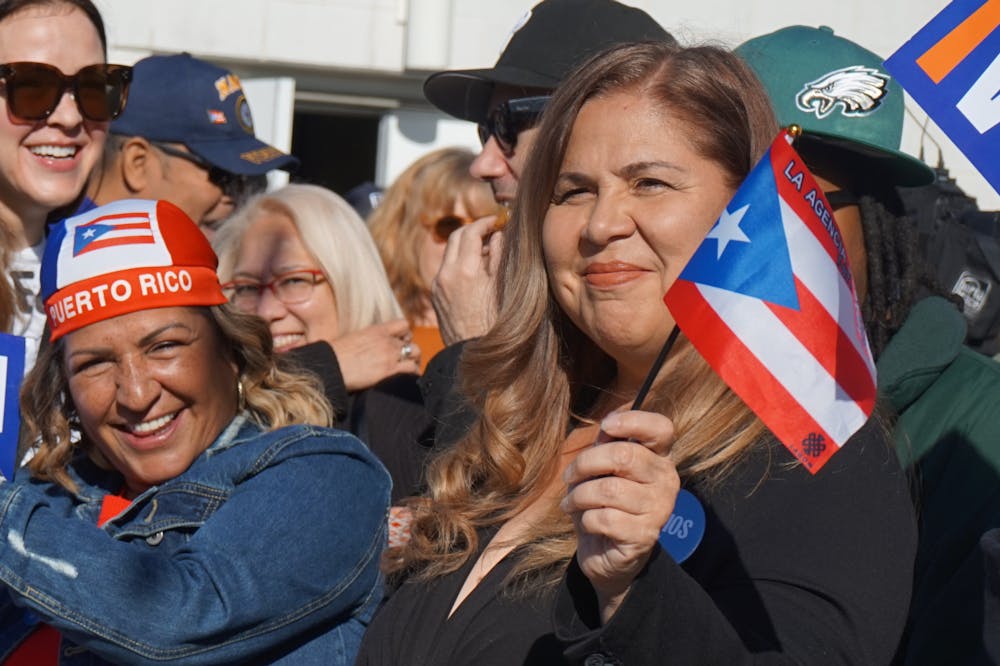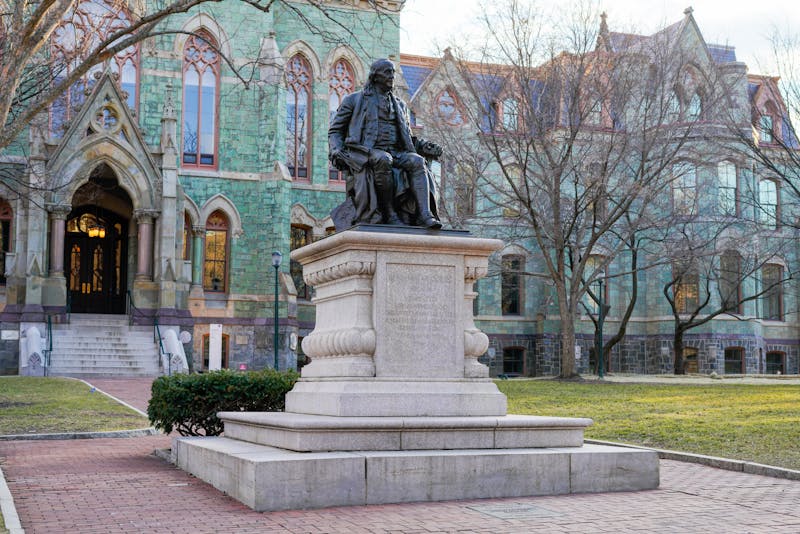
“So, what are you?”
This question commonly plagues me as people ask whether I’m considered an international student or whether I’m a part of the United States in general.
My response? Usually two words: “good question.” Frankly, it’s an easier alternative than discussing the colonial history of Puerto Rico.
Nearly every Penn student remembers “Where are you from?” as one of the five questions coded into our first-year repertoire. However, in my case, from this particular inquiry ensued many more surrounding the island's status as a whole.
The questions regarding the island vary, but as this semester has been marked by election season, it has felt as though I was sent as a representative to the U.S. To be fair, we only have one representative (with limited power) in Congress; thus, I don’t blame people for looking for another. However, certain instances have demonstrated an evident lack of awareness. Here, I wish to provide some of the most memorable commentary my Puerto Rican friends and I have received:
“How does school work in Puerto Rico?” “Did you come here on a boat?” (Or the alternative, “Did you come here on a canoe?”) “Do you guys have cars?” “Why are you here on the mainland?” “Do they have a winter break in Puerto Rico, like, do you have classes on Christmas because it doesn’t snow there?”
Now, why do I underscore these remarks? My argument here isn’t that every student at Penn should know every current event on the island. Frankly, few politicians could even do so. Instead, I wish to provide what information I can about Puerto Rico’s current political situation.
You might wonder, how does this link to Penn or even the state of Pennsylvania in general? This question also made me hesitate to write about the island as I thought it would be a far too limited target audience. But, upon observing this election season, I realized that the audience was far more expansive than I first gauged. In other words (to maintain the attention of the finance majors), it was an untapped market.
I was not the only person within the past few weeks who failed to recognize how far-reaching the audience was. Remarks from a Trump rally referred to my birthplace as a “floating island of garbage.” Naturally, this sparked outrage within the Latinx community, specifically among Puerto Ricans.
As of 2021, 5.8 million Puerto Ricans live in the U.S. Moreover, the 2020 Census Bureau underscored Puerto Ricans as the “largest detailed Hispanic group” in Pennsylvania, with nearly half a million people. The role that such a community holds in our own environment, although prominent, has been commonly overlooked.
Part of the impact that Puerto Ricans have is their role regarding the federal elections. Those living on the island are not allowed to vote, but Puerto Ricans residing within the continental U.S. have the option of choosing to vote either in federal or island elections if they have a residence in the latter. Thus, for Puerto Rican students studying in the U.S., this choice is not one that should be considered lightly. The implications of having to apply one of the few rights I still maintain in either one place or another can unveil moral dilemmas within itself.
Despite where the ballot was ultimately cast, Nov. 5 was still incredibly monumental as it was two-fold for Puerto Ricans, with the elections for governor on the island occurring simultaneously with the presidential election. Throughout the entirety of Puerto Rican history, governmental elections have been dominated by two political parties: the New Progressive Party (advocating for statehood) and the Popular Democratic Party (aiming to preserve the Commonwealth status). However, this year marked the first time a candidate from neither of these parties was a front-runner, as a candidate from the Puerto Rican Independence Party acquired 32.78% of the votes and finished second.
Since the gubernatorial election, however, multiple media outlets on the island have questioned the integrity of the system. For example, 24 hours prior to the election, there were allegedly around 6,000 deceased citizens identified as active voters in what reportedly seems to be a fraudulent voting scheme. Currently, the State Election Commission is carrying out its general scrutiny to certify the election results. Whether the results of this scrutiny validate the previously reported election results or underscore a different victor is yet unclear.
In addition to voting for governor, ballots on the island allow for Puerto Ricans to state who, if given the opportunity, they’d vote for in the presidential elections which resulted in 73.36% for Kamala Harris and 26.64% for Donald Trump. Such a result is indicative of both long-standing and emerging political ideals on the island. Moreover, the current victory of the New Progressive Party now clashes with the intentions of the Republican majority in the Senate, considering Senate Minority Leader Mitch McConnell’s statement claiming that “there won’t be any new states admitted to give a partisan advantage to the other side…” Therefore, the future status of the island is, as it has always been, one big question mark.
The relationship between Puerto Rico and the United States is loaded with history that is too vast to explore in its entirety in an article well-past its word limit. Thus, if you feel the need to ask once more “what are you?” to a Puerto Rican as a way to know more about the status of the island, make sure it is genuine interest that motivates your inquiries and not a simple desire to fill the air with small talk. Because, if you don’t have at least two hours to spare, the response you most likely will hear is simply “good question.”
BEATRIZ BÁEZ is a College sophomore studying mathematics and political science from San Juan, Puerto Rico. Her email is beabaez@sas.upenn.edu.
The Daily Pennsylvanian is an independent, student-run newspaper. Please consider making a donation to support the coverage that shapes the University. Your generosity ensures a future of strong journalism at Penn.
Donate






